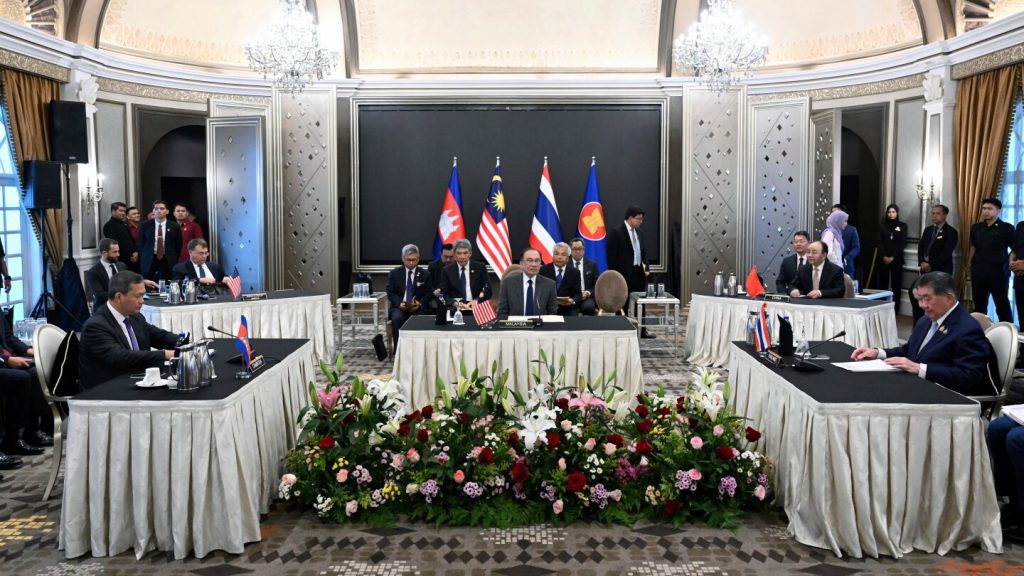Ceasefire Talks Begin Amid Ongoing Border Clashes
KUALA LUMPUR, Malaysia (AP) — In a critical attempt to address the escalating violence between Thailand and Cambodia, ceasefire discussions have commenced in Malaysia. These talks aim to resolve the deadly border confrontations that have now extended into their fifth day, despite escalating international appeals for peace.
The meeting took place Monday, featuring Cambodian Prime Minister Hun Manet and Thai Acting Prime Minister Phumtham Wechayachai at the Malaysian leader Anwar Ibrahim’s official residence. Anwar is facilitating these negotiations as the head of the Association of Southeast Asian Nations (ASEAN).
The clashes began last Thursday following a land mine explosion that injured five Thai soldiers. Both nations have accused each other of instigating the violence, resulting in a death toll of at least 35 and the displacement of over 260,000 individuals. In response, both countries have recalled their ambassadors and Thailand has closed all border crossings with Cambodia, aside from allowing migrant workers to return home.
Reports indicate that fighting persisted on Monday, with gunfire audible in Samrong, located in Cambodia’s Oddar Meanchey province. A spokesperson from the Cambodian defense ministry noted that Thai forces were continuing a “strong” assault.
As the talks unfolded, Anwar emphasized the need for an immediate ceasefire, noting that both parties would outline their conditions for peace. He expressed hope for a successful resolution, stating, “Although it’s not as bad as many other countries, we have to put a stop to the violence.”
Pressure from U.S. President Donald Trump has contributed to the urgency of the negotiations, with warnings that the U.S. might reconsider trade agreements with either nation if hostilities persist. Prior to his arrival in Kuala Lumpur, Phumtham mentioned that representatives from both China and the U.S. would be present as observers, highlighting that trust could be a challenge given Cambodia’s ongoing military actions.
The recent conflict marks an unusual case of overt military engagement between ASEAN nations, which generally prioritize peaceful dialogue and cooperation. In a statement released on Monday, ASEAN foreign ministers expressed concern about the increasing violence and the humanitarian impact on affected populations, urging both countries to resort to negotiations for a resolution.



